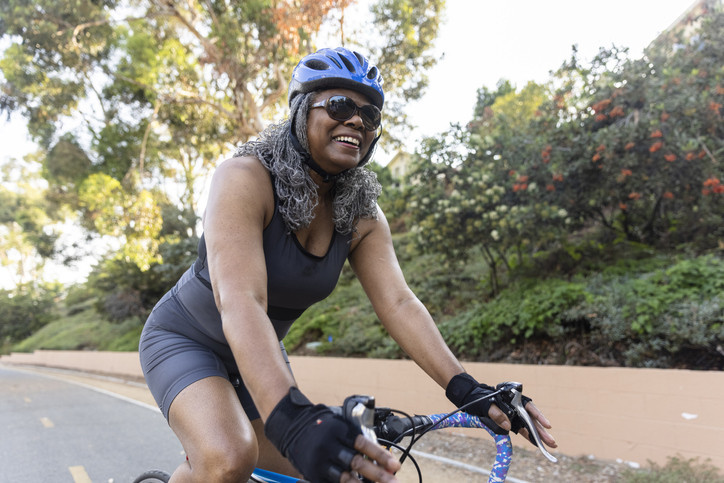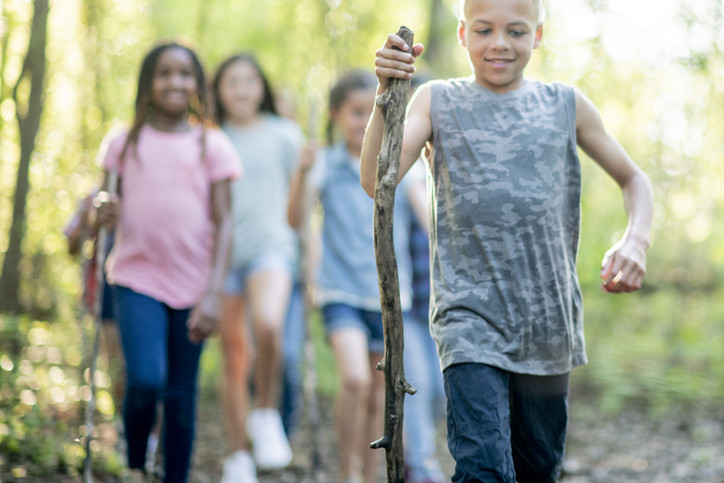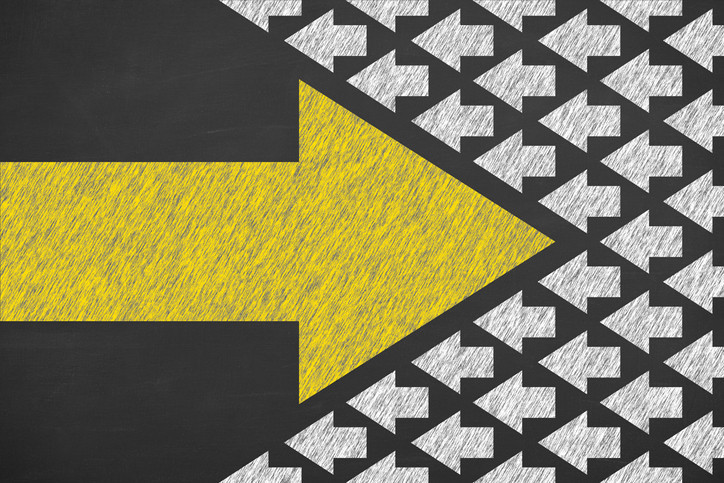
Trying to lose weight? Be careful not to lose muscle

Is your skin problem actually an autoimmune condition?

People with diabetes face higher risk of hearing loss

Antibiotic-free fixes for recurrent UTIs

Musculoskeletal syndrome of menopause: When menopause makes you ache all over

When can older women stop getting mammograms?

To lose weight, especially harmful belly fat, combine diet and exercise

Can men hold off on treating recurring prostate cancer?

The 7 types of rest and why we need them all

What are the early warning signs of cervical cancer?
Harvard Health Blog
Read posts from experts at Harvard Health Publishing covering a variety of health topics and perspectives on medical news.
Articles
Some men whose prostate cancer progresses can safely delay treatment
Prostate cancer can progress over long durations, and if a man's tumor has features that predict slow growth, he can opt for active surveillance instead of immediate treatment. But when the time for treatment comes, up to a third of men still decide against it. Now, a new study finds that for some of these men, treatment can be safely delayed.
Heart-healthy habits for children and teens lengthen lives
Researchers who began collecting data on thousands of people, starting when they were children and following up decades later, found that five risk factors influence health outcomes in adulthood. Parents should know the important steps they can take to get their children started toward healthy lives as adults.
Monkeypox: An unfamiliar virus spreading fast — sound familiar?
More than two years after COVID-19 reached the US, an outbreak of monkeypox is spreading fast outside of Africa. This virus is not new, and it's likely to be less dangerous than COVID, but it's still important to be aware of its symptoms, spread, treatment, and prevention.
Diabetes: Does a long-term study reinforce or change approaches to prevention?
Over two decades ago, the Diabetes Prevention Program study showed that type 2 diabetes could be slowed or even prevented in people with early signs of it. Now, a long-term follow-up study focusing on death rates from several causes has produced some surprising results.
War anxiety: How to cope
News and social media are filled with disturbing stories and images. Anxiety about war, coming on top of two years of the pandemic, is hitting us particularly hard. The symptoms of war anxiety can be physical or mental; knowing what tools to use and how can help break the anxiety cycle.
Want to try veganism? Here's how to get started
Some people decide to adopt a vegan diet because of concerns about the health effects of eating animal products; for others it's more about concern for animal welfare and the environment. Regardless of the motivation, those who want to make this change should anticipate potential pitfalls and be aware of issues specific to vegan eating.
Vitamin B6 flies under the radar: Are you getting enough?
Vitamin B6 helps with the body's enzyme reactions, immune system health, brain chemicals, and more, but it doesn't get a lot of attention. The body can't synthesize it, so people need to get it from food, and a recent study found that a surprisingly high percentage of people may be deficient in vitamin B6.
The formula shortage is hurting families: What parents should know and do
With the current baby formula shortage, parents all over the country are upset, confused, and scared. While formula companies and the government are working to restore the supply, it may take a while before it's easy to buy formula. In the meantime, here are some do's and don'ts for parents to be aware of.
Gyn Care 101: What to know about seeing a gynecologist
There are many reasons you might want or need to see a gynecologist or seek gyn care from your health care team. It helps to understand who will provide your care, what to expect during the visit, what to discuss, and how to have a positive experience during the visit.
Strong legs help power summer activities: Hiking, biking, swimming, and more
Legs are the foundation for many enjoyable activities—running, bicycling, swimming, and more. Building strong leg muscles can improve your performance, build endurance, and reduce your risk of injury. These exercises will work all of the major muscle groups in your legs.
What is a successful mindset for weight loss maintenance?
Most people are able to lose weight in the short term, but will probably regain that weight as time passes. By studying people who lose weight and are able to maintain the loss for several years, insight into their approach can help others understand the strategies that are most likely to lead to long-term success.
French fries versus almonds: Calorie for calorie, which comes out on top?
A study compared eating a serving of French fries every day for a month to eating a serving of almonds with the same number of calories, and found that levels of some health markers were similar between the two groups — but those numbers don't tell the full story.
Summer camp 2022: Having fun and staying safe
After all we've been through during the last couple of years, many families and kids are looking forward to being able to return to summer camp. But COVID-19 is still with us and parents need to consider this as they make plans for safe and fun summer activities.
An action plan to fight unhealthy inflammation
Inflammation serves a vital role in the body's defense and repair systems, but chronic inflammation can be harmful. Learn six of the most effective ways to ward off unhealthy inflammation.
How to recognize and tame your cognitive distortions
Cognitive distortions are internal mental filters or biases that fuel anxiety and make us feel bad about ourselves. These filters can cause us to devolve into counterproductive brooding that can worsen depression or anxiety and stall positive lifestyle changes. So how can you recognize and overcome these distortions?
LATE: A common cause of dementia you've never heard of
LATE is a brain disorder that causes dementia in older individuals. In fact it is the third most common cause of dementia, but it affects many of the same brain regions as Alzheimer's disease so it presents with similar symptoms, and it's only with the advent of special diagnostic tests that clinicians have realized how common it is.
How to break a bad habit
We all have habits we'd like to break, but the brain doesn't make changes easily. Breaking an unhealthy habit can be done; to do so, it helps to understand what's happening in the brain, know why you want to change, and accept that there will be setbacks along the way.
What is alopecia areata and how is it managed?
Hair loss is a common problem for many men and women, but what does it mean to have alopecia? Alopecia areata occurs when the body's immune system attacks hair follicles, resulting in hair loss. AA can affect the scalp, eyebrows, eyelashes, or anywhere hair grows on the body.
New Harvard tool helps fact-check cancer claims
Scary or misleading claims about things that may cause cancer are so plentiful that it's hard to know which ones to take seriously. A new website developed by experts aims to provide reliable information about whether a particular cancer claim is true.
Repeating the story: What to expect in the emergency department
If you wind up in an emergency department due to an illness or accident what should you know and what can you expect? It's frustrating to have to wait for care, and also frustrating to have to explain your situation multiple times to different people, but there are reasons why it all happens.
Blood donations are down — so why restrict blood donors by sexual orientation?
The blood supply in the US is critically low, but FDA guidelines prohibit men who have sex with men from donating blood if they have been sexually active in the previous three months. All donated blood is tested for a number of transmissible infections, and medical organizations are calling for this policy to be changed.
Eating disorders spike among children and teens: What parents should know
A notable rise in eating disorders is particularly marked among adolescent girls. Many kinds of eating disorders can affect children and teens, and parents need to understand their causes and be aware of signs suggesting their child may have an eating disorder.
Recognizing and treating disorders of gut-brain interaction
Many conditions of the gastrointestinal tract are easy to diagnose using standard testing. But some such diseases can impact the GI tract without a clear test finding. Disorders of gut-brain interaction are so called because they involve impaired communication between the gut and brain via the nervous system.
Power your paddle sports with three great exercises
Like kayaking or canoeing, paddleboarding provides a serious workout. But before you head out on the water, you'll want to get some key muscle groups in shape, especially ones that probably have not been used much during winter.

Trying to lose weight? Be careful not to lose muscle

Is your skin problem actually an autoimmune condition?

People with diabetes face higher risk of hearing loss

Antibiotic-free fixes for recurrent UTIs

Musculoskeletal syndrome of menopause: When menopause makes you ache all over

When can older women stop getting mammograms?

To lose weight, especially harmful belly fat, combine diet and exercise

Can men hold off on treating recurring prostate cancer?

The 7 types of rest and why we need them all

What are the early warning signs of cervical cancer?
Free Healthbeat Signup
Get the latest in health news delivered to your inbox!
Sign Up

























